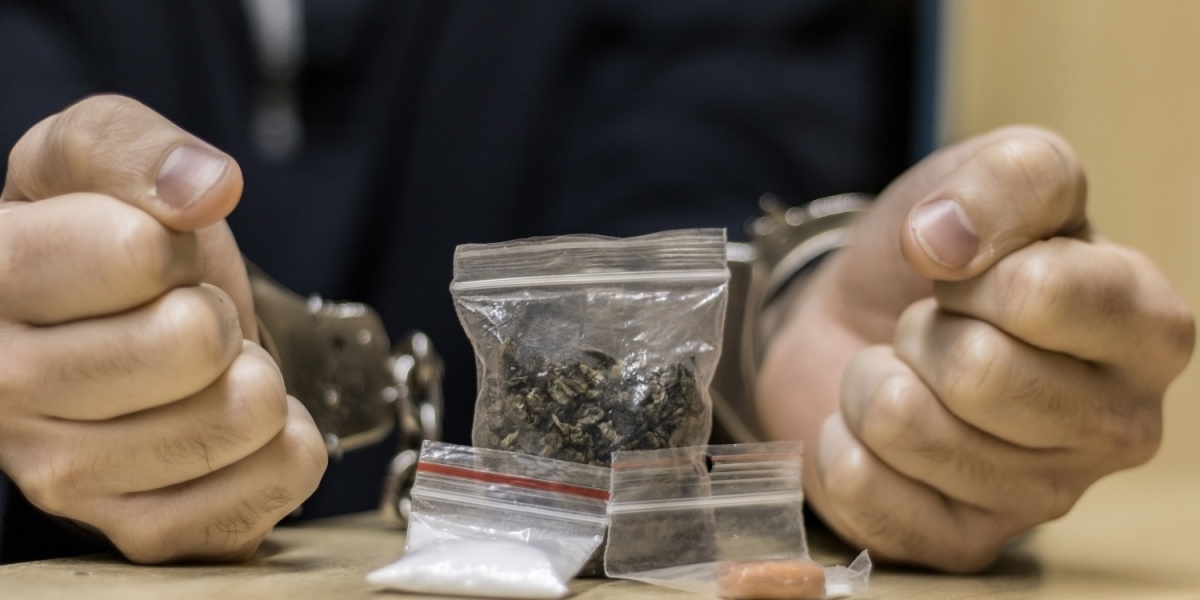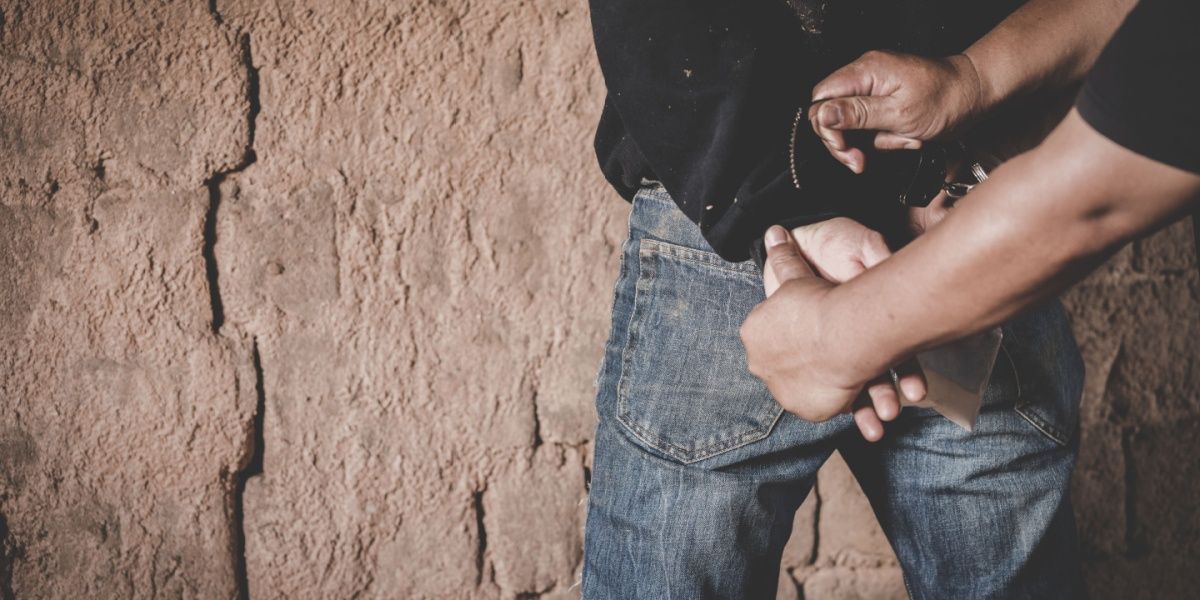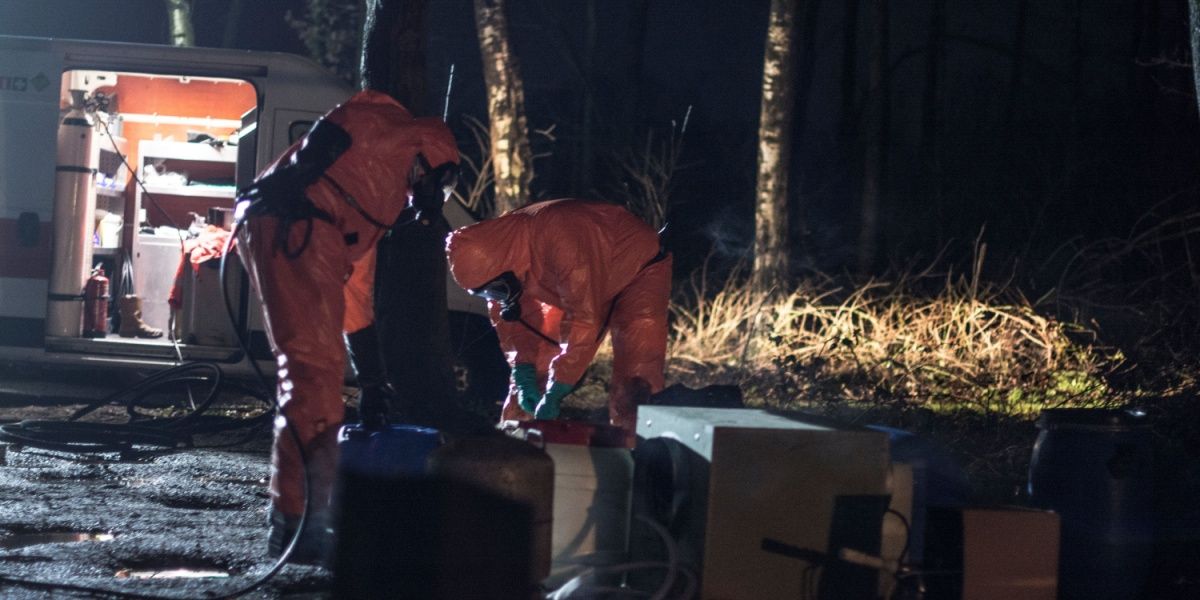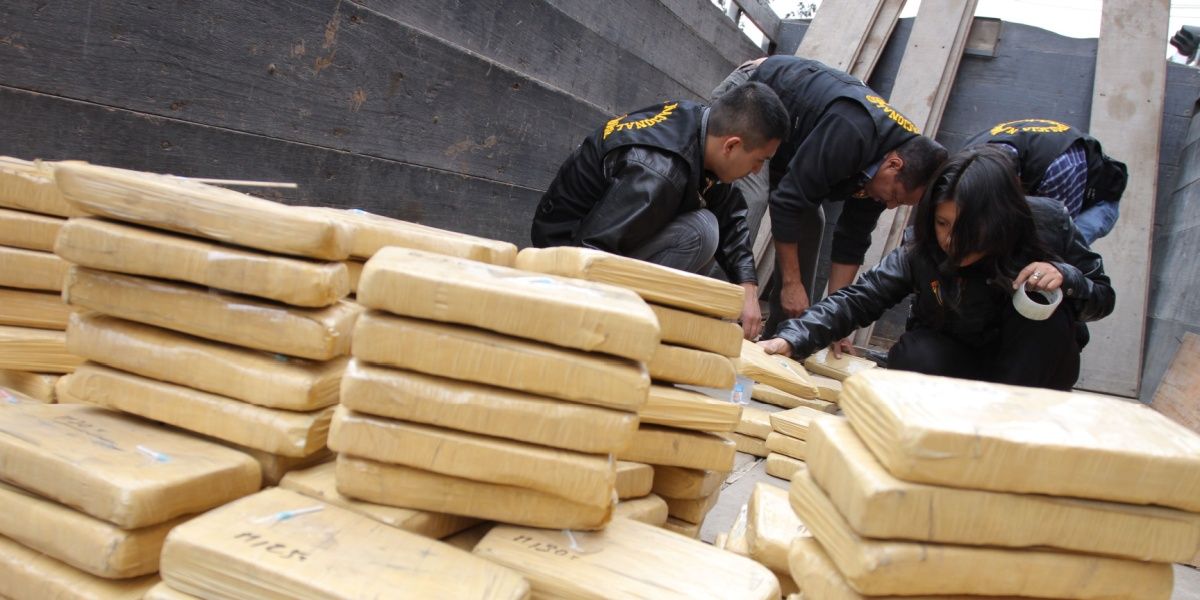If you are found with substances on your person or in an area under your control, you are likely to be charged with a drug possession offense. Each state has varying laws and penalties regarding drug possession, which differ depending on the type and amount of drug and if there is evidence of intent to supply.
- Possession offenses are broken up into two categories; simple possession and possession with intent to supply, the latter of which carries higher penalties.
- State laws for possession can differ from federal laws, with individual states often having specific penalties depending on the substance type and weight found in an individual's possession.
- The maximum penalty for possession of a Schedule I substance (depending on the amount) is up to 20 years in prison.

What is classified as drug possession?
Drug possession refers to someone knowingly having an illegal controlled substance on their person or within their property, without a valid prescription. This includes substances such as ecstasy, LSD, heroin, cocaine, and methamphetamine, as well as illegally obtained prescription drugs such as oxycodone, fentanyl, and benzodiazepines. [1]
Possession charges may also apply to the possession of chemicals used in the production of illicit substances and paraphernalia used in the manufacturing or consumption of drugs, such as crack pipes, syringes, or clandestine laboratory equipment. [2]
Two elements of possession must occur for a legitimate arrest or charge to be brought.
First, the individual must be aware that they are in possession of the drug. If they unknowingly have access to substances, they may not be charged with possession. For example, if a person law enforcement finds drugs in a shared property, certain individuals living in the home may not be charged with possession if they can prove they have no knowledge of the presence of drugs.
Second, the individual must be aware of the legal status of the substances in their possession. If they are unaware that they possess illegal drugs, they may not be charged. For example, if someone is asked to look after a friend’s tablets, believing that the tablets have been obtained with a prescription, when in fact they have been obtained illegally, the individual could argue that they were not aware. [1]
Categories of possession
Possession of drugs can apply to an individual knowingly having illicit substances on their person or property for personal use. It can also apply to those who intend to sell substances to others.
Categories of possession are referred to as simple possession, including constructive possession, and possession with intent to supply.
Simple possession
Simple possession often involves an individual holding a small amount of a substance on their person, which is intended to be used personally.
Simple possession can also apply when drugs are found in an area deemed to be under the individual’s control if the individual has access to and knowledge of the drugs. This is known as constructive possession. For example, if drugs are found in a car with several individuals, a charge of constructive possession could be brought against one or more of these people. [2]
Intent to supply
Possession with intent to supply may be more likely to involve larger quantities of substances, with evidence that the individual intends to sell smaller amounts to others or is trafficking the substance. This can be more difficult to prove without clear evidence of a sale. However, certain paraphernalia may indicate intent to supply, such as bags for separating and distributing small doses, weighing scales, or cash in small bills. [1][3]
State laws for drug possession
Possession of a controlled substance can be deemed both a federal and state crime. Specific laws and charges for possession can vary by state. Many states specify a category or class of felony and misdemeanor depending on the type and amount of drug, with penalties ranging from 6 months to life imprisonment and fines ranging between $500 and $500,000. [2][4]
State-specific laws by weight
Some states have specific laws for a certain type and amount of substance. For example, in Ohio, possession of under 5 grams of cocaine is deemed a fifth-degree felony with a penalty of 6-12 months imprisonment and up to $2,500 fine. The classification of the offense and the potential penalty increase with the weight. Possession of 100 grams or more is deemed a first-degree felony with a mandatory penalty of 11 years imprisonment and up to a $20,000 fine. [4]
In other states, such as North Dakota, penalties are less severe, with simple possession being deemed a misdemeanor with up to a year imprisonment. Several states, including North Dakota, detail specific laws about possession on or near school grounds, youth centers, or school buses, which lead to more severe penalties and a felony charge. [4]
State laws for marijuana possession
Also, state laws for the possession of marijuana differ. Marijuana is a Schedule I controlled substance as per federal law, although several states have decriminalized or legalized marijuana. As such, possession of personal or medicinal marijuana may not result in possession charges in these states. [5]
For example, in Georgia, where cannabis is illegal, possession of up to one ounce can be charged as a misdemeanor with a penalty of up to 12 months imprisonment and a $1000 fine. Possession of an ounce or more can be charged as a felony offense with a penalty of 1-10 years imprisonment and up to a $100,000 fine.
In contrast, possession of cannabis in Connecticut is deemed a civil offense with no jail time and a potential fine of $100-500. [4]
Possession charges by scheduled substances
The Controlled Substances Act (CSA) describes the legal status of certain substances, which are categorized depending on their abuse and addiction risk and whether they have any accepted medical uses. Higher-risk substances, such as Schedule I and II, will tend to incur more severe charges for possession. [6]
Schedule I
Schedule I controlled substances include heroin, ecstasy (MDMA), marijuana, psilocybin, and LSD.
These substances have a high potential for abuse and physical dependence and have no accepted medical uses.
An individual may be charged with possession if found with any amount of one of these substances. Depending on the state, and the type and amount of substance, this could be deemed a first-degree felony and incur a penalty of 1-20 years imprisonment.
Possession with intent to supply a Schedule I substance could lead to a harsher penalty with more prison time and a larger fine.
Schedule II
Schedule II controlled substances include cocaine, methamphetamine, oxycodone, hydrocodone, morphine, fentanyl, and PCP.
These substances also have a high potential for abuse and physical dependence but have some accepted medical uses.
Being found in possession of any of these substances without a valid prescription can lead to a charge of possession. In many states, this is likely to be deemed a felony and can incur lengthy prison time and large fines.
Schedule III
Schedule III controlled substances include ketamine, anabolic steroids, and lysergic acid.
These substances have a lower potential for abuse and dependence and some medical uses.
Depending on the amount and the state in which the charge is given, possession of a Schedule III substance may be deemed a minor felony with a penalty of up to five years, or a misdemeanor with a penalty of up to one year.
Schedule IV
Schedule IV controlled substances include benzodiazepines, such as diazepam, lorazepam, and alprazolam.
These substances have some abuse and dependence potential and are used medicinally.
Being found in possession of a Schedule IV substance without a valid prescription could lead to a possession charge and a penalty of up to six months.
Rohypnol (roofies, date rape drug) is also a benzodiazepine and a Schedule IV substance. However, due to its use in criminal offenses such as exploitation and sexual assault, possession of one or more grams of Rohypnol can lead to the same penalties as given for possession of a Schedule I substance. [7]
Schedule V
Schedule V substances include some cough medicines containing codeine. These substances are unlikely to lead to abuse and dependence and are used medicinally.
Possession of a Schedule V substance may be deemed a minor misdemeanor and could lead to a penalty of up to 30 days imprisonment or a small fine. In some states, this category of medication may be available without a prescription. In these cases, possession of these substances is not considered illegal.
Sentencing for drug possession charges
Possession charges may be sentenced in a state or federal court, depending on the circumstance, type and amount of drug, and any prior drug offenses. In many cases, small amounts of substances considered simple possession will be deemed a misdemeanor or a lower-class felony and often incur up to a year of imprisonment and a fine of up to $1000. [8]
Possession of larger amounts will be more likely to incur a felony charge with harsher sentences and larger fines. Possession with intent to supply may be deemed a first-degree felony with many years of jail time and significantly larger fines. [4]
Sentencing for possession charges may vary depending on the state. Sentences may be harsher in some states than others, although this can depend on the severity of the crime and the number of drug offenses. For example, the average sentence for drug offenses in Arizona is 17 months while in Iowa the average is 111 months. [4][9]
Also, some states have introduced options to engage in treatment or rehabilitation programs for minor drug charges. These options act as an alternative to fines or prison sentences and can help individuals with substance use issues receive appropriate intervention. [4][5]
Drug possession law FAQs
Does owning drug paraphernalia count as possession?
Owning drug paraphernalia is not a federal crime, although in some states it may be illegal and can be punishable by prison time and fines. [10]
Paraphernalia can be used as evidence toward a possession charge while paraphernalia containing drug residue can itself count as possession. Being caught with items such as bags and scales may count as evidence of intent to supply. [3]
It is illegal to sell paraphernalia such as bongs and pipes. However, many shops list these items as paraphernalia for tobacco smoking or other uses. [10]
Is it possession if drugs are found on your property?
If law enforcement finds controlled substances in your home or an area under your control, you may be charged with constructive possession unless you can prove that you had no knowledge of them. This can be a gray area and may depend on whether the property is shared by several tenants, where in the home the drugs were found, and any other relevant evidence. [1][11]
Is possession a felony?
Possession can be deemed a misdemeanor or a felony. This varies by state and often depends on the type and amount of drug found. Many states consider simple possession of a small amount of substances a misdemeanor, while larger amounts or evidence of intent to supply will typically be considered a felony. [4]
Can you be charged with drug possession after the fact?
If you are not in possession of drugs you cannot be charged with possession. However, if there is evidence of drug use, such as paraphernalia containing drug residue, this can still lead to a charge of possession. Similarly, if law enforcement removes a substance or item to test it, a possession charge can be brought once the results are received. [12]
If drugs are found in your car, who is responsible?
If drugs are found in your car, it is likely that you will be charged with possession as it is typically believed that you have knowledge of their presence. However, if there are several people in the car and the drugs are found on another individual or in a space that all have access to, it may be more difficult to prove possession. [1][2]




